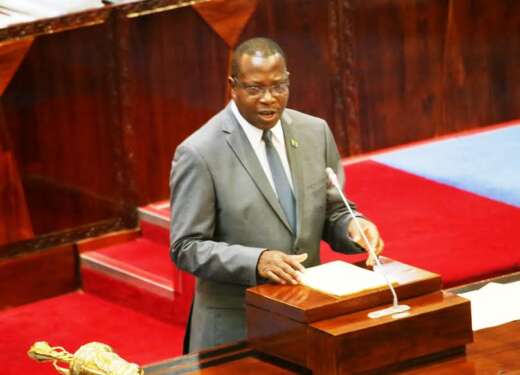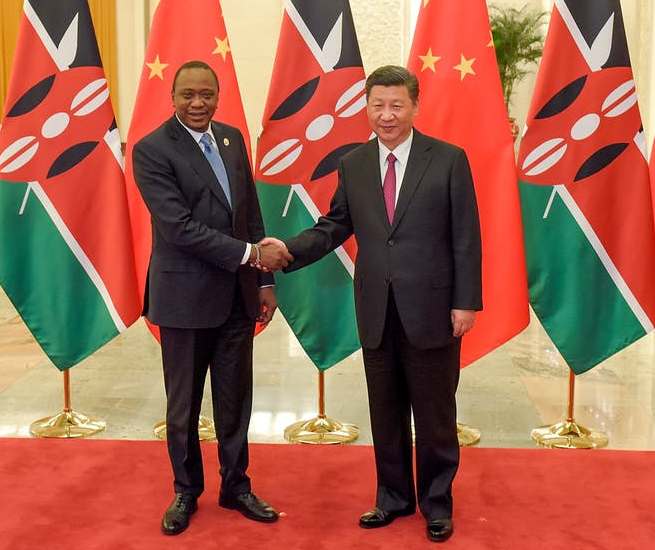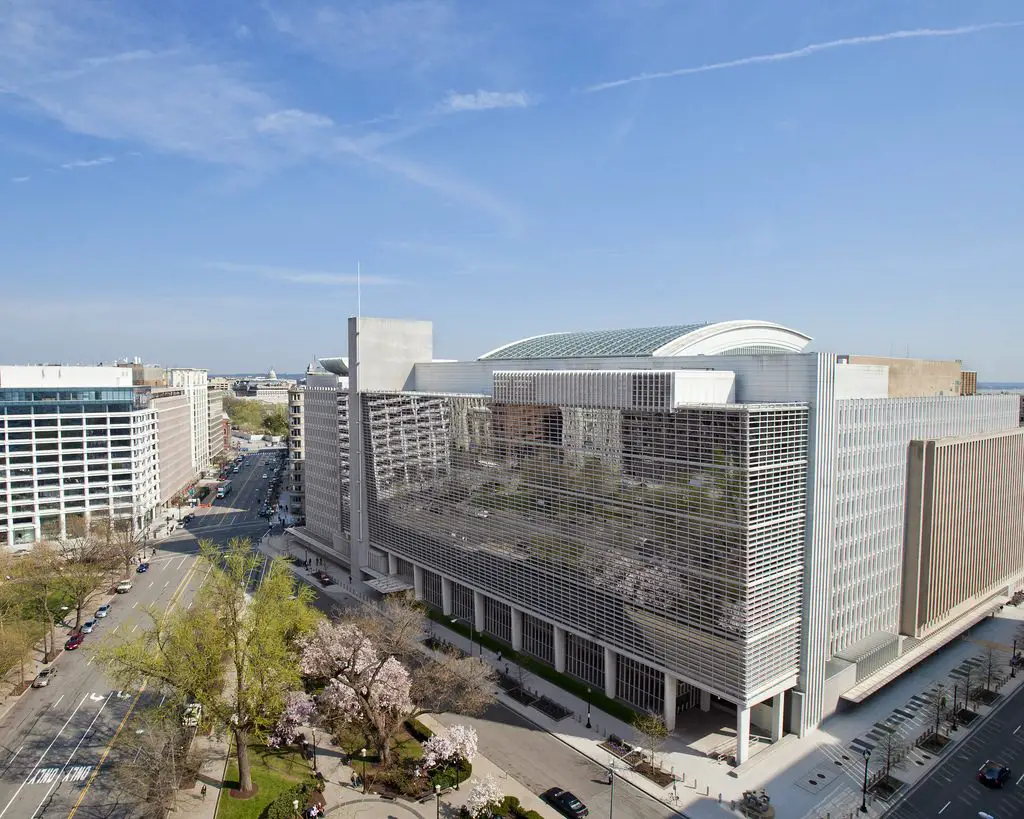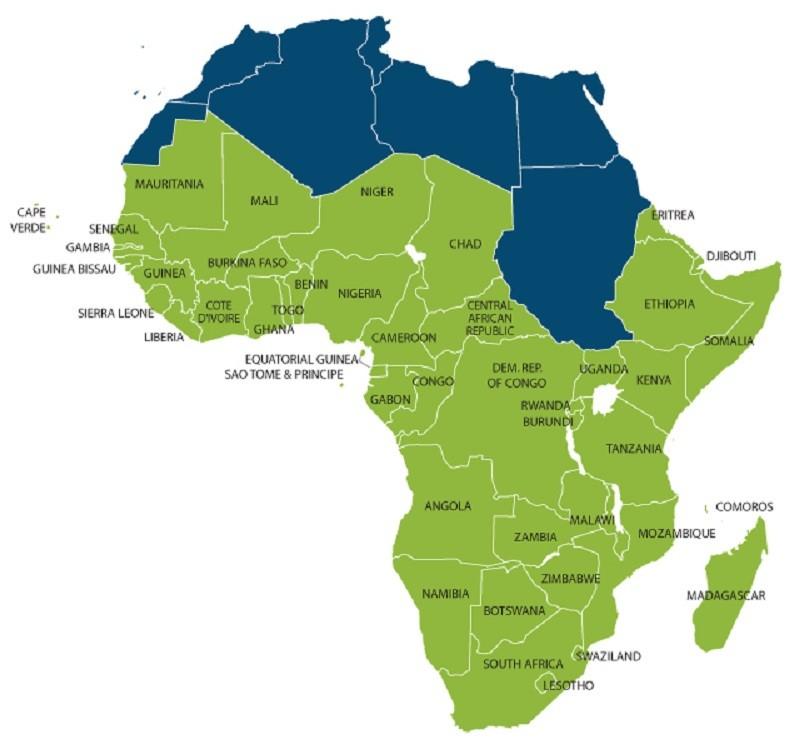- Stanbic PMI Report: Mixed performance as Kenya’s agriculture, construction offset manufacturing decline
- Uganda’s land management gets a tech makeover to boost transparency
- Nigeria’s output dips fastest in 19 months on a sharp rise in costs
- Apple faces growing backlash over Congo exploitation
- Why East Africa is staring at higher wheat prices in 2025
- Nairobi Gate SEZ pumps $7 million into Kenya’s agro-processing industry
- What impact will the US election have on Africa?
- Russia and Tanzania unite to double trade, boost Africa market access
Browsing: World Bank
The funds will support the Kenya Mortgage Refinance Corporation
The World Bank has approved a USD250 million International Bank for Reconstruction and Development (IBRD) loan to support housing projects in Kenya.
The funds are expected to enhance access to affordable housing finance for Kenyans who are unable to access long-term housing finance.
The Kenya Affordable Housing Finance Project (KAHFP) will support the establishment and operationalization of the Kenya Mortgage Refinance Corporation (KMRC), a largely private sector-owned and non-deposit taking financial institution under the supervision of the Central Bank of Kenya.
KMRC’s goal is to drive affordability of mortgages by providing more long-term funding to financial institutions, an incentive to enable them to offer long tenure loans to homebuyers.
The project will also assist the Ministry of Lands and Physical Planning to improve property registration and address structural constraints in the land management system in Kenya.
“We believe that Kenya’s vibrant …
The economy generated 840,600 new jobs compared to 787,800 in 2017
Kenya’s economy expanded by 6.3 per cent in 2018, the economic survey released on Thursday indicates, a notable comeback from a 4.6 per cent growth recorded the previous year.
This came as the country recovered from the effects of the persistent drought experienced in 2017, coupled with uncertainties associated with general elections held in the same year.
READ:Kenya’s economy falls below Tanzania and Rwanda, records 4.9% growth
The growth has principally been attributed to increased agricultural production, accelerated manufacturing activities, sustained growth in transportation and vibrant service sector activities.
“Agricultural activities benefited from sufficient rains that were well spread throughout the country,” Kenya National Bureau of Statistics (KNBS) Director General Zachary Mwangi said during the launch of the Economic Survey (2019) in Nairobi.
Similarly, the increased precipitation was a significant boost to electricity generation and consequently favourable …
The International Monetary Fund’s (IMF) report on Tanzania’s economic status was one-sided.
Finance and Planning Minister, Dr Phillip Mpango opened up on April 23, 2019 detailing why the government did not give IMF the green light to publish the content.
Responding after the matter was raised in the National Assembly, Dr Mpango said that the go-ahead was not given because opinions given by government experts after reading the first draft were not included in the final report.
“The IMF team was in the country from November 26 to December 7 last year. After preparing the draft I received on March 18 and we gave opinions that should have been accommodated in the final report but that did not happen,” the minister said.
Dr Mpango noted that during his recent visit to Washington DC for the 2019 spring meetings organized by the World Bank and IMF, he held talks on the …
Loans from China closed 2018 at USD6.2 billion (Ksh 627.1 billion)
Kenya will be keen to secure additional funds from China for construction of Phase 2B of the Standard Gauge Railway (SGR), as the World meets for the second Belt and Road Forum for International Cooperation (BRF) in Beijing.
The forum which takes place this week is expected to attract a high number of Heads of States from Africa and across the globe, with thousands of delegates from over 100 countries.
President Uhuru Kenyatta’s administration is seeking a Ksh370 billion (USD 3.67 billion) loan to extend the rail project which is currently at its second phase of construction (Nairobi-Naivasha).
Phase one of the project, 472 kilometre Mombasa —Nairobi line, is currently operational having been completed and commissioned by President Kenyatta on May 31, 2017.
It was constructed by China Road and Bridge Corporation (CRBC) on a Ksh327 billion (USD3.2 billion) …
The government expects private sector to contribute 60% of the development
International property developers are angling themselves to tap into the housing projects in Kenya’s Big Four Agenda, a boost to President Uhuru Kenyatta’s ambition to deliver 500,000 units by 2022.
This came out at the sixth East Africa Property Investment Summit (EAPI) held in Nairobi this week, where the government called on the private sector to support the projects, assuring them of offtake.
An offtake assurance or agreement is a commitment between a producer and a buyer to purchase or sell portions of the producer’s future production.
“We want to assure the developers that whatever they build, we will buy,” Charles Hinga, Kenya’s Principal Secretary -State Department of Housing and Urban Development.
He spoke during the event which saw Nairobi host some of the largest international and regional developers and financial investors such as USA’s Echostone housing, South Africa’s …
The International Monetary Fund (IMF), the international economic advisory body, has cut its forecast for Tanzania’s economic growth for this year and 2020 to four percent, down from previous expectations.
Tanzania is forecast for economic growth of 4 percent in 2019 before accelerating modestly to 4.2 percent in 2020 – a drop from an estimated 6.6 percent in 2018. In January last year, the IMF said it expected Tanzania’s economy to grow between six and seven percent over the medium term, provided the country increased capital spending and improved its business environment. However, the organization has drastically cut its outlook for the country, predicting growth of four percent in 2019 and a minor increase for 2020.
The Fund also predicts Tanzania’s consumer price inflation will reach 3.5 percent this year and rise to 4.5 percent in 2020.
The IMF’s revised forecast contradicts government estimates that predict the economy will grow …
Sub-Saharan Africa’s economic growth slowed to 2.3 per cent in 2018 from 2.5 per cent in 2017, remaining below population growth for the fourth consecutive year, the World Bank has said.
In the April 2019 issue of Africa’s Pulse, its bi-annual analysis of the state of African economies published on Monday, the bank said regional growth was expected to recover to 2.8 per cent in 2019, staying below three per cent as it has been since 2015.
The slow growth reflects ongoing global uncertainty but increasingly comes from domestic macroeconomic instability including poorly managed debt, inflation, and deficits; political and regulatory uncertainty; and fragility that is having visible negative impacts on some African economies.
It also belies stronger performance in several smaller economies that continue to grow steadily, the bank said.
It noted that Nigeria’s growth rose to 1.9 per cent in 2018 from 0.8 per cent in 2017, reflecting …
Three years past the crisis period, economies are still performing poorly
The growth story in Sub-Saharan Africa in the past few years has been one of faltering recovery from the worst economic crisis of the past two decades.
This remains the case according to the World Bank’s April 2019, 19th edition of Africa’s Pulse, which estimates GDP growth in 2018 at a lower-than-expected 2.3 per cent, with a forecast to 2.8 per cent in 2019.
“Three years past the crisis period, we should be seeing a more widespread pickup in growth; instead we have downgraded our estimates again for 2018,” said Gerard Kambou, World Bank Senior Economist for Africa, “Leaders in Sub-Saharan Africa have the opportunity to build stronger domestic policies to withstand global volatility – and now is the time to act.”
The report notes that the three largest African economies—Nigeria, Angola and South Africa—play a big role …










